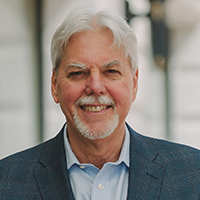
Dimon, JPMorgan Board Face Investor Judgment
 JPMorgan Chase & Co.’s May 21st annual meeting in Tampa should be a doozy for Chairman and CEO Jamie Dimon and the company’s 11-member board. The country’s largest bank has come in for some withering criticism ever since it lost a reported $6 billion last year on a disastrous credit derivatives trading strategy. Early comments by Dimon that the loss was only $2 billion and the bank had the situation under control—only to see the loss estimates continue to escalate—most certainly hurt his credibility with banking regulators (who later ordered the board to improve JPM’s risk management processes) and Congress (where Dimon was summoned to testify about what went wrong.)
JPMorgan Chase & Co.’s May 21st annual meeting in Tampa should be a doozy for Chairman and CEO Jamie Dimon and the company’s 11-member board. The country’s largest bank has come in for some withering criticism ever since it lost a reported $6 billion last year on a disastrous credit derivatives trading strategy. Early comments by Dimon that the loss was only $2 billion and the bank had the situation under control—only to see the loss estimates continue to escalate—most certainly hurt his credibility with banking regulators (who later ordered the board to improve JPM’s risk management processes) and Congress (where Dimon was summoned to testify about what went wrong.)
Now the bank’s large institutional shareholders—including the likes of BlackRock Inc., Vanguard Group Inc. and Fidelity Investments, which collectively own 12 percent of JPM’s outstanding shares—get to have their say. One measure that is up for a shareholder vote calls on the bank to divide the chairman and CEO titles between two different people. The vote is nonbinding but would be an embarrassment for Dimon and the board since the company has argued publicly and strenuously that he should continue as chairman.
Two influential shareholder advisory firms—Institutional Shareholder Services (ISS) and Glass Lewis—have recommended that JPM shareholders vote for the measure. Citing their dissatisfaction with the board’s risk governance performance, both ISS and Glass Lewis also recommend that three JPM directors who currently serve on the risk policy committee not be re-selected. Glass Lewis went even further and also recommended that three members of the audit committee not be re-elected as well, arguing that the trading loss revealed shortcomings in the bank’s auditing practices.
Taken together, the two advisory firms have come out against the re-election of over half of JPM’s board (there is no overlap between the audit and risk policy committees), and would strip Dimon of his chairmanship. If that’s not a stinging rebuke of the governance performance of JPM’s board, I don’t know what is.
Shareholders are voting on the proposals now and the results will be announced at the May 21st meeting.
Would separating the jobs of chairman and CEO really make a difference at JPM? It could, if the board brought in a new person to serve as the non-executive chairman—which no doubt is what ISS and Glass Lewis would prefer. The board does have a “presiding director” (essentially the same thing as a lead director), retired Exxon Mobil Corp. CEO Lee R. Raymond, but would Raymond be able to ride herd on a strong-willed CEO like Jamie Dimon as effectively as someone new from the outside? ISS says it met with Raymond after the trading debacle to express its concerns about the performance of the risk policy committee, but later concluded that any changes made to JPM’s risk management practices after the big loss were initiated by management and not the board—hardly an endorsement for his leadership.
I can think of two reasons why Dimon wants to hold on the chairmanship at JPM. One, he probably believes he deserves to. The bank has reported a profit for 12 consecutive quarters, its stock has been trading within a couple of bucks of its 52-week high, and unlike two other megabanks that are in many of the same businesses—Bank of America Corp. and Citigroup Inc.—JPM came through the 2008-2009 global financial crisis largely unscathed. Just two years ago, Dimon was hailed as something of an American (or at least a Wall Street) hero for how he managed the bank during that frightening time. While the trading loss was an embarrassment and revealed some serious flaws in JPM’s risk management practices, Dimon has enjoyed a long and successful career. Getting fired as chairman would be humiliating for this very proud man, especially when he has made relatively few mistakes.
But there’s probably another reason Dimon doesn’t want an outsider coming in as his new boss. In March 2012, Michael E. O’Neill, a former Bank of Hawaii Corp. CEO who was widely praised for turning that troubled company around some years ago, replaced Richard Parsons at the non-executive chairman at Citigroup. By October of last year, Citi’s CEO—Vikram Pandit, who had steered the bank through the 2008-2009 financial crisis when it required massive government support to survive—was forced to resign after O’Neill engineered his dismissal. It didn’t take long for O’Neill to turn Citigroup’s board against Pandit even though he had stabilized the company after the crisis and was gradually returning it to financial health.
Here’s why Glass Lewis believes the chairman and CEO roles should be separated: “Research suggests that combining the positions…may hinder a board’s decision to dismiss an ineffective CEO.”
I’m sure Pandit would agree—and no doubt Dimon would, too. Dimon might not be “ineffective,” but he could still be dismissed.



